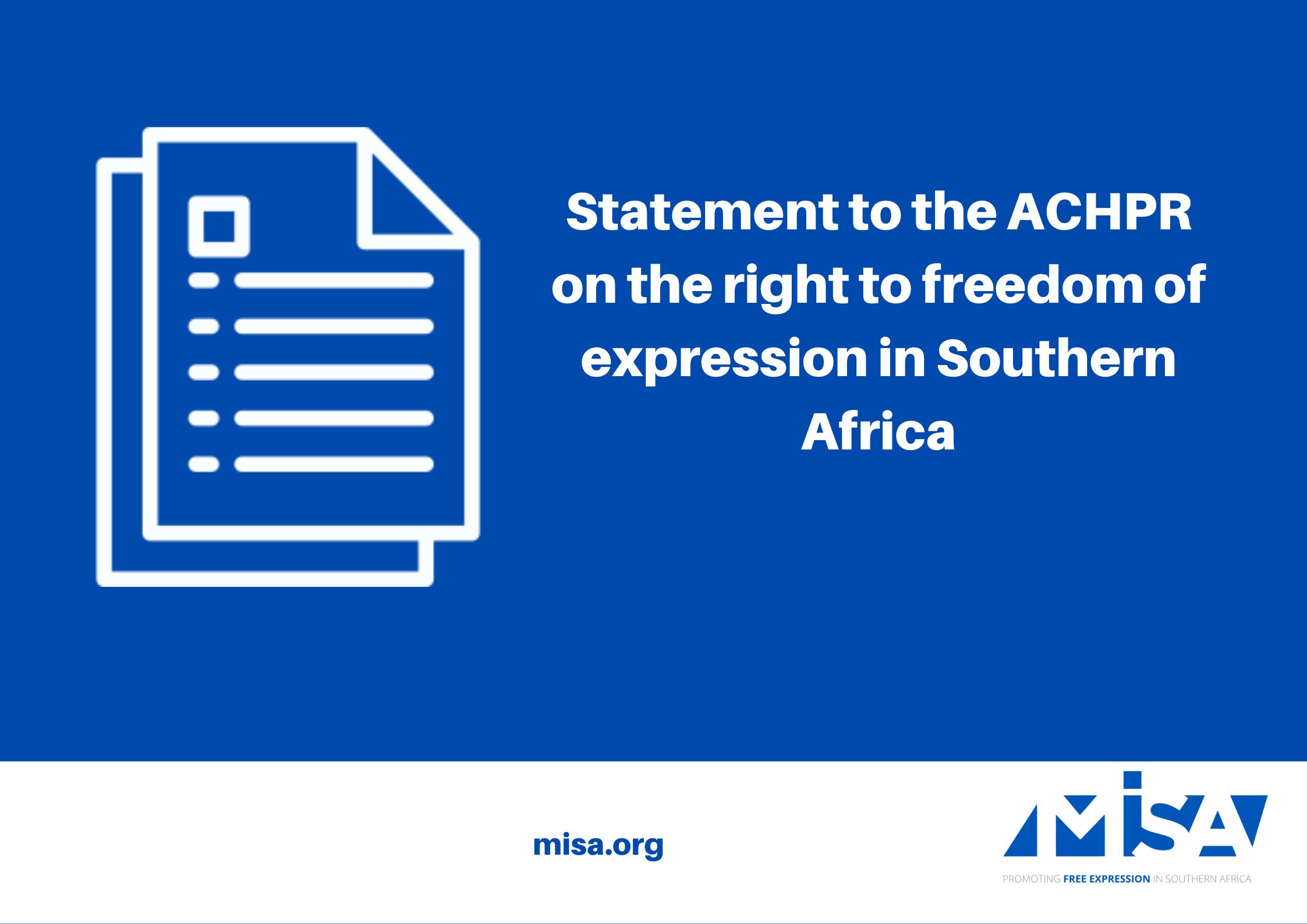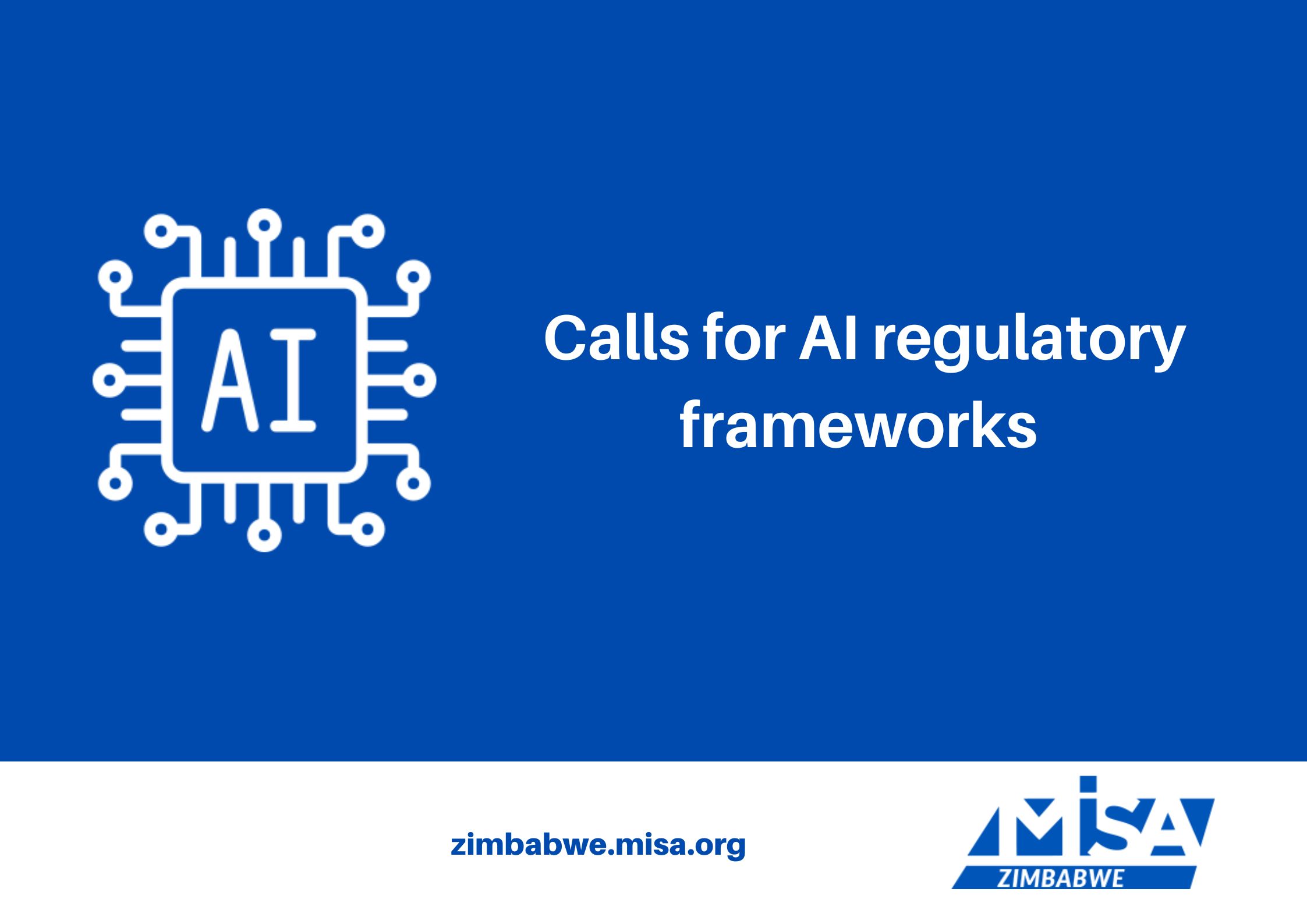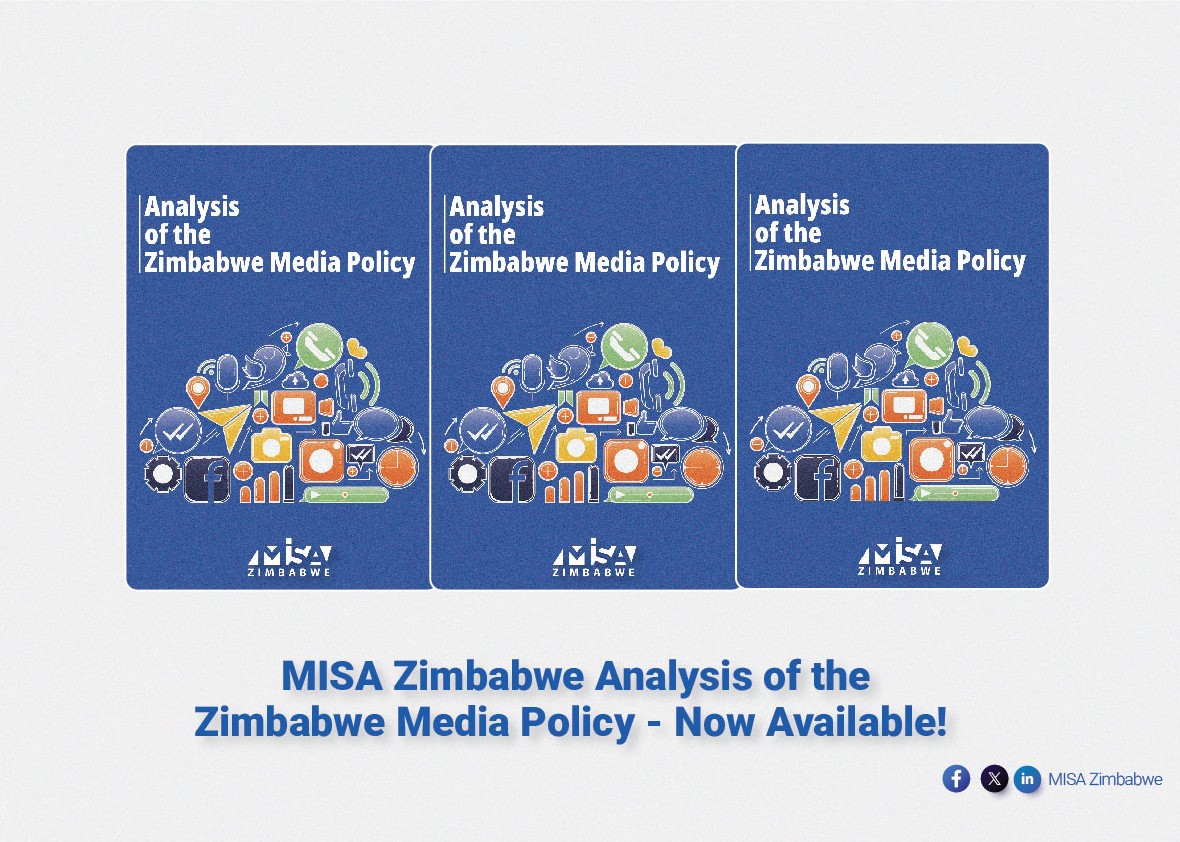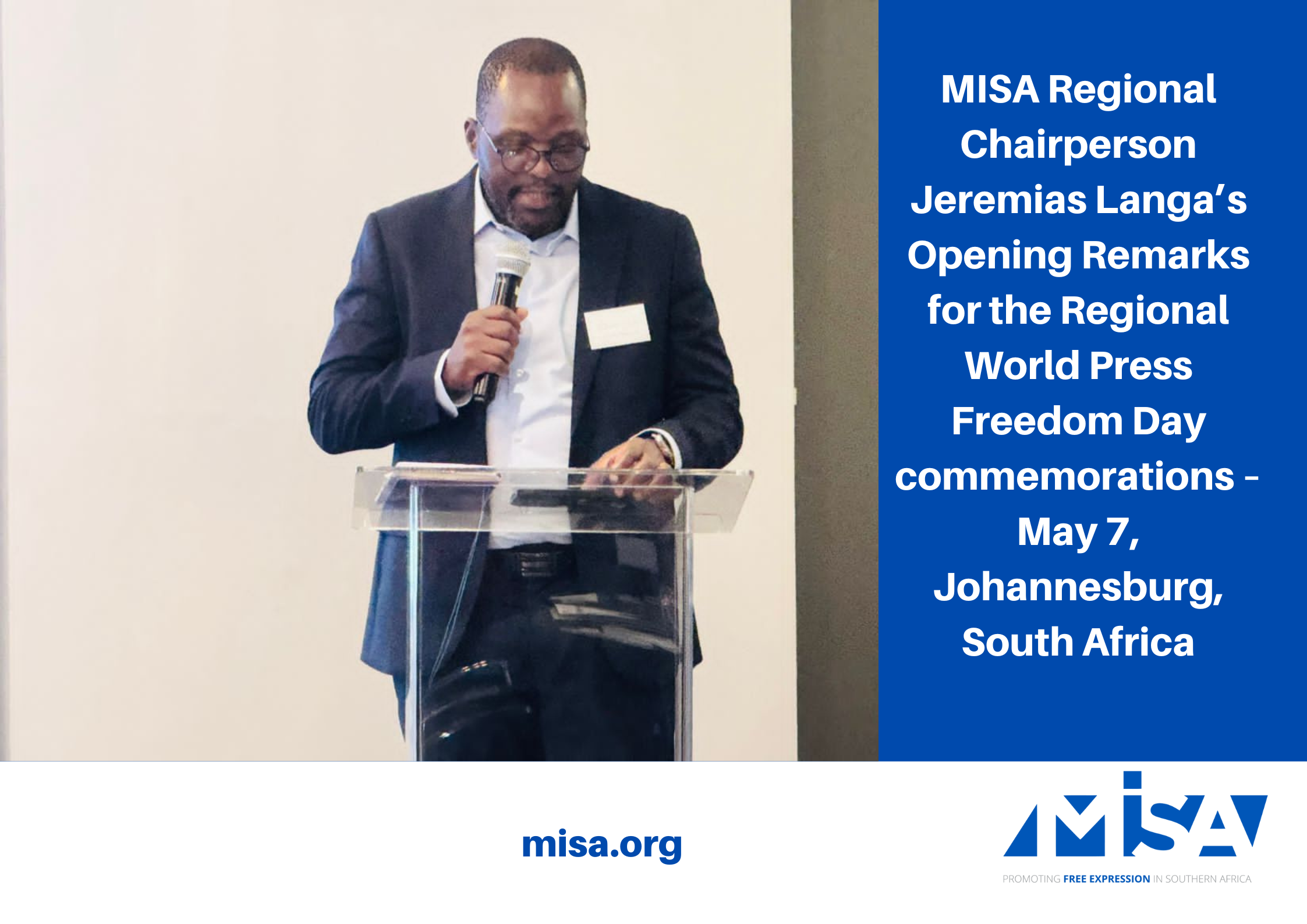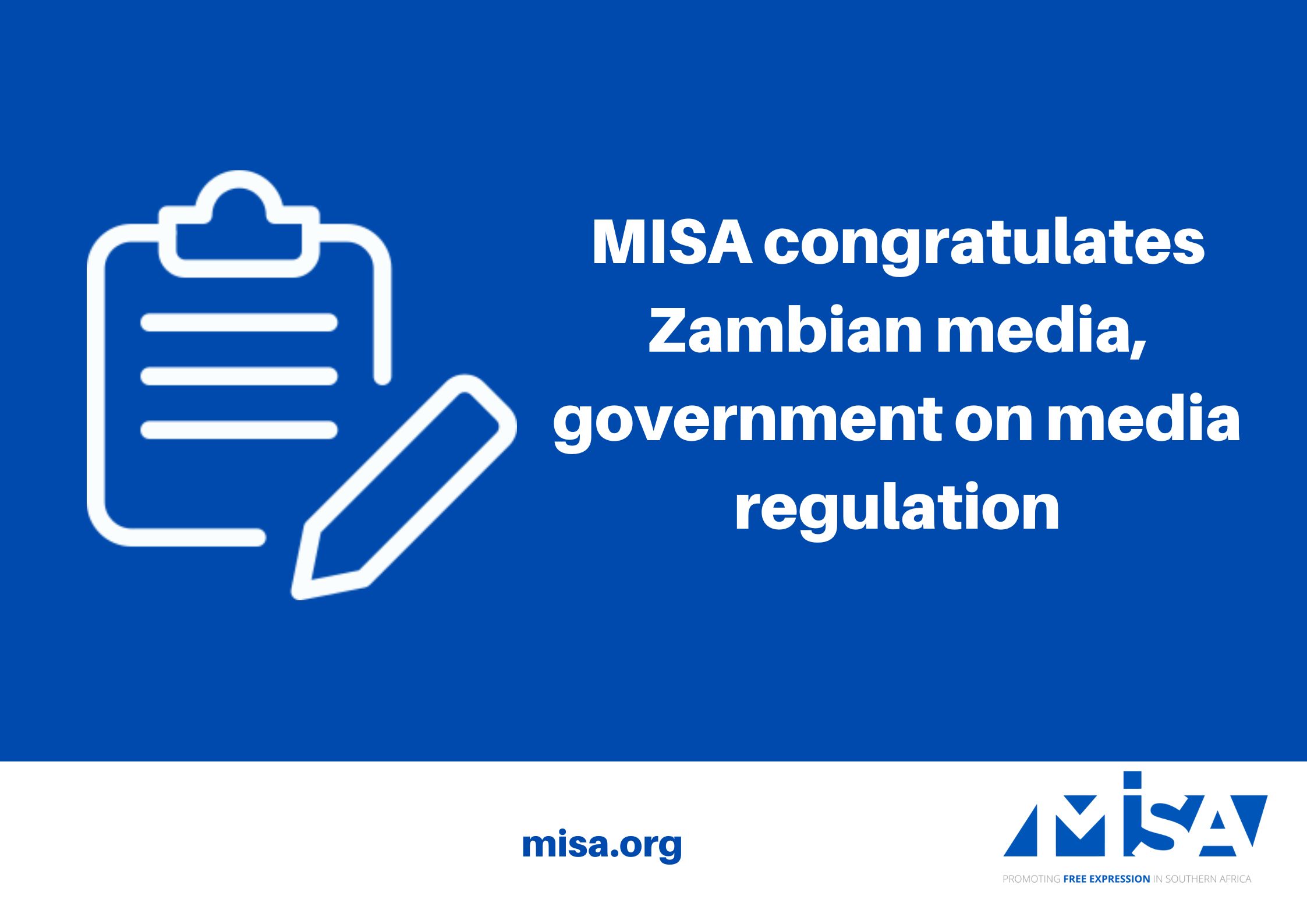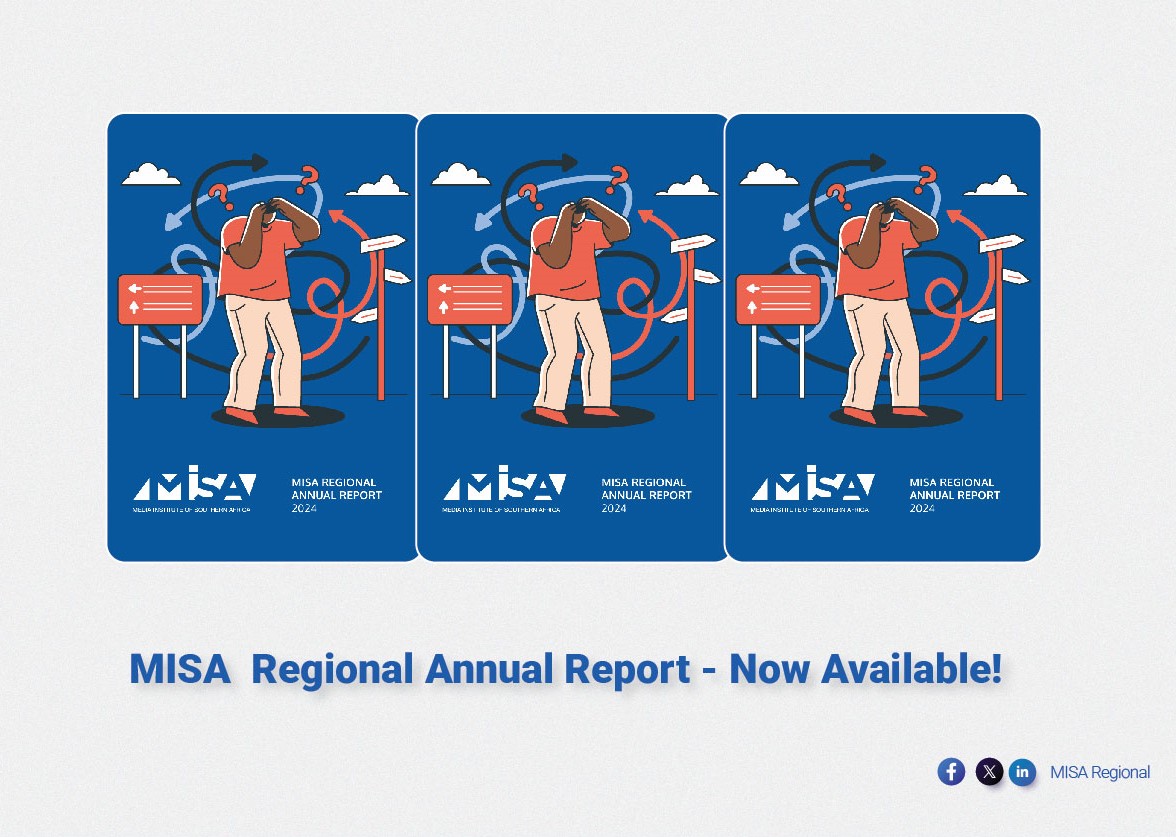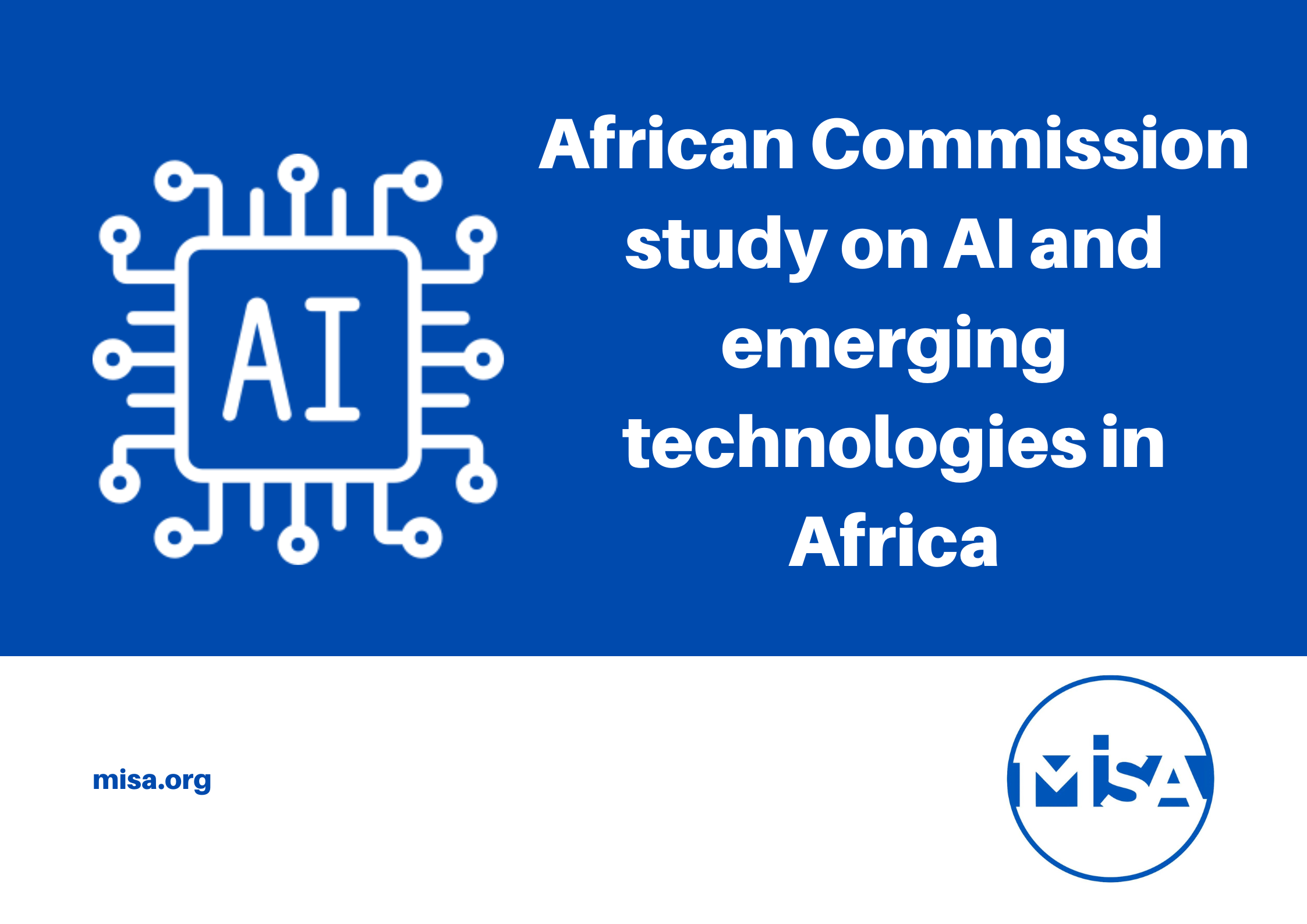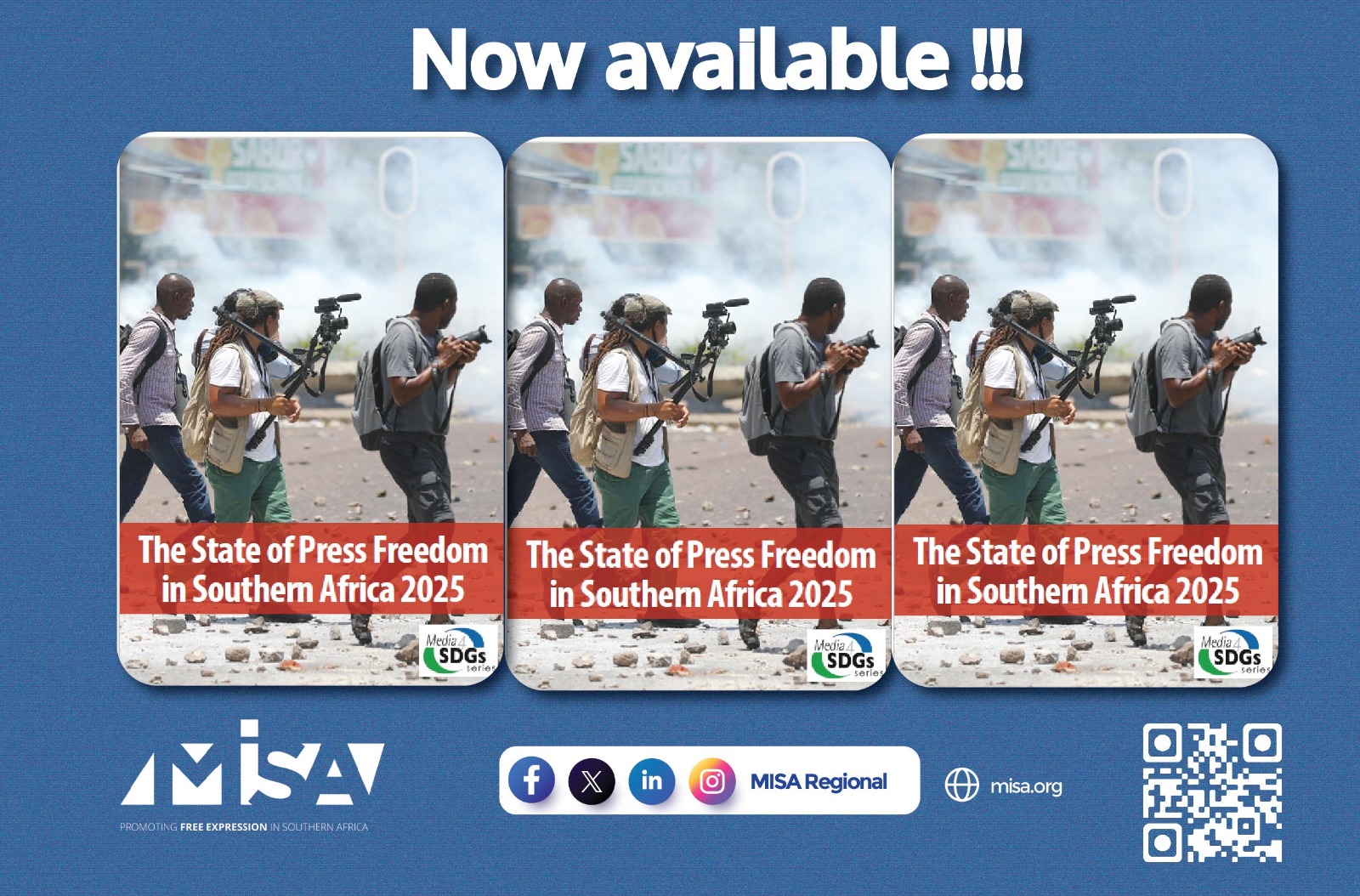Chairperson, Honourable Commissioners, State delegates, ladies and gentlemen, the Media Institute of Southern Africa (MISA) is honoured to present this statement during the 75th Session of the African Commission on Human and Peoples’ Rights (ACHPR).
As we celebrate the 30th anniversary of World Press Freedom Day, it is sad to note that this comes at a time when the media and the peoples of Southern Africa continue to face various challenges in their respective countries. Thirty years on, the problems and complexities facing the media and the press have deepened. These pertain to issues of media viability, new threats brought by online tools, artificial intelligence and the effect and impact of misinformation and disinformation on our democracies.
- Growing self-censorship
Governments across the region have introduced cybersecurity and cybercrime laws ostensibly meant to deal with online crime. In effect, these laws criminalise free expression and defamation online. These include Zambia’s Cyber Security and Cyber Crimes Act, the Cyber and Data Protection Act in Zimbabwe and Tanzania’s Cybercrimes Act. This is coupled with fake news laws that were enacted in 2020 at the beginning of the COVID-19 pandemic. The trend was started by South Africa and soon after most countries in the region enacted similar legislation. While South Africa has removed all COVID-19 regulations, most countries in Southern Africa are yet to do the same, meaning the publication of falsehoods remains criminalised. The courts in most countries and ACHPR declarations are clear that criminalising the publication of falsehoods has a chilling effect on freedom of expression.
- Shrinking civil space
Following the Financial Action Task Force (FATF) recommendations, there has been a flurry of countries enacting laws that have adverse effects on freedom of expression and freedom of association. The FATF recommendations are meant to guard against the funding of terrorists and money laundering, but in Southern Africa, the recommendations, particularly Recommendation 8, have been used to constrict civil space. Malawi introduced the NGO Act, while the enactment of the Private Voluntary Organisations Amendment Bill is at an advanced stage in Zimbabwe. Mozambique is working on drafting an NGO law, which has been described as signalling the “death of the civic movement” in Mozambique. On the other hand, Zimbabwe plans to amend the Criminal Law (Codification and Reform) Act – also known as the Patriot Act – which will have an untold effect on freedom of assembly and freedom of expression. Botswana also enacted an amendment to the Criminal Procedure and Evidence (Controlled Investigations) Act, which allows for the wholesale snooping on communications, which could affect investigative journalism and whistleblowing.
- Surveillance
At least three countries in Southern Africa were named in an investigation by Toronto Lab as having acquired surveillance from an Israeli firm. The three are Botswana, Zambia and Zimbabwe. The arrest of Gregory Gondwe in 2022 in Malawi was a tell-tale sign that surveillance was being used in that country. While an argument can be made that surveillance can be used for policing and security, however, there is a need for a human rights-based approach to the use of surveillance technology. Governments ought to be transparent about where surveillance is used and why it is being used. In addition, authorities need to be accountable, rather than having these operations shrouded in secrecy. At the moment, there is no transparency and accountability, and it looks like there is a cloak-and-dagger approach in the deployment of surveillance technology. In terms of freedom of expression and freedom of the media, uncontrolled surveillance poses an existential threat to investigative journalism, whistleblowing and the right to privacy.
- Online gender-based harassment
Adopting Resolution 522 by the African Commission on Human and Peoples’ Rights (ACHPR) on the Protection of Women Against Digital Violence in Africa is a positive step in promoting gender participation and freedom of expression, particularly for female journalists. We have witnessed growing attacks on female journalists, particularly from government officials. There is an example of a government official from Zimbabwe, who has used graphic statements online, which could drive female journalists from online spaces. Cyberbullying and trolling of female journalists is on the rise, and there is a need to nip it in the bud, as it adversely affects participation and engagement.
- Elections and the safety of journalists
A total of ten southern African countries are due to hold elections in the next two years. Elections in Southern Africa are often fraught with attacks against media workers.
The by-elections in Zimbabwe in 2022 were an early warning sign for the violations that may arise in the 2023 elections. The situation in Eswatini remains volatile, yet the country is also due to hold elections. Demonstrations in that country have been met with heavy-handedness from the State, and this has seen journalists being injured.
Furthermore, a journalist has been designated as a terrorist in that country. What is worrying is that countries that are due to hold elections such as the Democratic Republic of Congo (DRC), Eswatini and Zimbabwe, have a history of shutting down the internet during key political and electoral processes.
In 2024 the following countries are due to hold one form of an election or the other: Botswana, Malawi, Madagascar (2nd round presidential), Mauritius, Mozambique, Namibia and South Africa.
To ensure the safety of journalists, Electoral Management Bodies (EMBs) need to discharge their roles with impartiality and also play a more prominent role to safeguard journalists, particularly during electoral campaigns. Additionally, authorities must conduct thorough investigations into all attacks against journalists that may have occurred prior to the official commencement of campaigns.
MISA remains open to constructive engagement with the Governments of Southern Africa through the Southern African Development Community secretariat.
We, however, urge the ACHPR to encourage the Governments of SADC to:
- Domesticate the United Nations Plan of Action on the safety of journalists and the issue of impunity.
- Repeal legislation that has the potential to infringe on freedom of assembly and freedom of expression in countries such as Botswana, Malawi, Mozambique, Zambia and Zimbabwe.
- Adopt a human-rights based approach in the deployment of surveillance and Artificial Intelligence.
- Adopt legislation that aims at combating all forms of digital violence and expanding the definition of gender-based violence to include digital violence against women, including cyber-harassment, cyberstalking and sexist hate speech, among other ICT-related violations.
- Repeal vague and overly broad laws on surveillance as they contribute to the existing vulnerability of female journalists.
The statement by MISA Regional Secretariat Director, Dr Tabani Moyo, was virtually presented at the 75th Ordinary session of the African Commission of Human and People’s Rights on the 4th of May, 2023.




